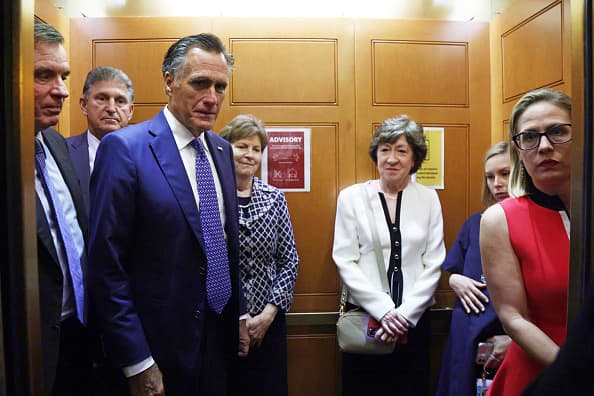Bipartisan infrastructure deal omits major climate change measures

U.S. President Joe Biden speaks following a bipartisan meeting with U.S. senators about the proposed framework for the infrastructure bill, at the White House in Washington, June 24, 2021.
Kevin Lamarque | Reuters
White House negotiators and a group of senators struck a deal on a bipartisan infrastructure agreement on Thursday that slashes measures to combat climate change and help the U.S. transition to a clean energy economy.
The narrow infrastructure deal leaves President Joe Biden's proposals on climate change to a separate bill that Democrats could attempt to pass through Congress using reconciliation, a process that doesn't require Republican support.
The second package could also include programs related to child and elder care, education, and health care, in addition to climate change measures, issues that administration officials have called "human infrastructure."
The expected elimination of climate measures in the plan comes as the world grapples with the effects of climate change — including worsening disasters like hurricanes, wildfires and droughts — and scientists urge that immediate action to slash greenhouse emissions is critical to avoid the worst consequences of global warming.
"We made serious compromises on both ends. ... We'll see what happens in the reconciliation bill and the budget process," the president said at the White House on Thursday.
The bipartisan plan includes just $15 billion toward electric vehicle infrastructure, electric buses and transit, a small fraction of the president's initial proposal to spend $174 billion on boosting the electric vehicle market.
The prospect of massing major climate legislation through Congress was a longshot from the beginning, but Democrats had been fighting to keep the president's climate measures in a bipartisan bill. The last major push to pass climate legislation was in 2009, when congressional Democrats failed to approve a carbon pricing system under former President Barack Obama.
House Speaker Nancy Pelosi, D-Calif., said during a press briefing on Thursday morning that the House would not take up the bipartisan infrastructure bill unless a reconciliation bill is also passed through the Senate.
"House and Senate Democrats are united in that we — in the House — are not bringing [it] to the floor unless both bills pass in the Senate," Pelosi said.
Sen. Ed Markey, D-Mass., and Jeff Merkley, D-Ore., have vowed to fight against a bipartisan deal without climate change policy unless there would be another future bill that does include it. Markey, in a statement to CNBC earlier this month, said that any proposal that fails to address and invest in climate change mitigation "is in denial."
"If we are not seizing this moment to get our emissions and our clean economy on track, we must reject this deal and work in good faith on a real climate infrastructure package," Markey said.
Protesters with the Sunrise Movement protest in front of the White House against what they say is slow action on infrastructure legislation, job creation and addressing climate change, as well as against attempts to work with Senate Republicans in Washington, DC, June 4, 2021.
Saul Loeb | AFP | Getty Images
Many Republicans have long argued that an infrastructure bill should only address traditional transportation issues, while Democrats have sought to include climate provisions among other measures. Ultimately, negotiations for a bipartisan deal have led to a slimmed down version of Biden's first plan.
Biden's original $2 trillion proposal included sweeping climate provisions, including installing at least half a million electric charging stations across the U.S. by 2030 and providing tax incentives for electric car buyers. Reducing the number of gas-powered vehicles is seen as essential for reducing carbon emissions.
The president's original plan also proposed an Energy Efficiency and Clean Electricity Standard that would require some U.S. electricity to come from zero-carbon sources like wind and solar power, and included investments for research and development on climate change mitigation technologies like carbon capture and storage.
Such measures would aid Biden's commitment to cut carbon emissions in half over the next decade and put the U.S. on track to become carbon neutral by 2050.
A poll released Thursday by climate research groups suggested that more than 62% of U.S. voters support a bill that prioritizes investments in clean energy infrastructure and 56% support Congress passing the legislation with or without Republican support.
"Two out of three voters want to see Congress and the president get on with the business of addressing climate change and decarbonizing our economy," Edward Maibach, director of the George Mason University Center for Climate Change Communication, said in a statement. "Most Americans see these actions as good for our country.
Twenty-one senators, 11 Republicans and 10 Democrats, currently support the bipartisan infrastructure framework. It would need to get 60 votes in order to pass in the evenly split Senate.
Read More

No comments